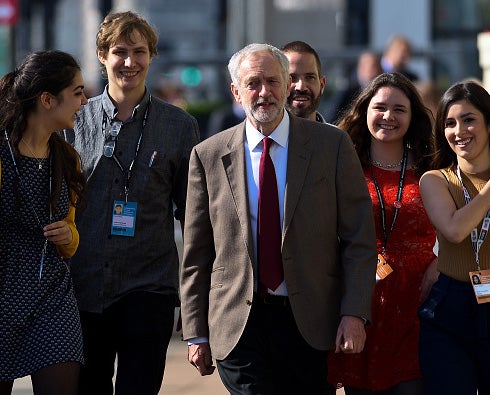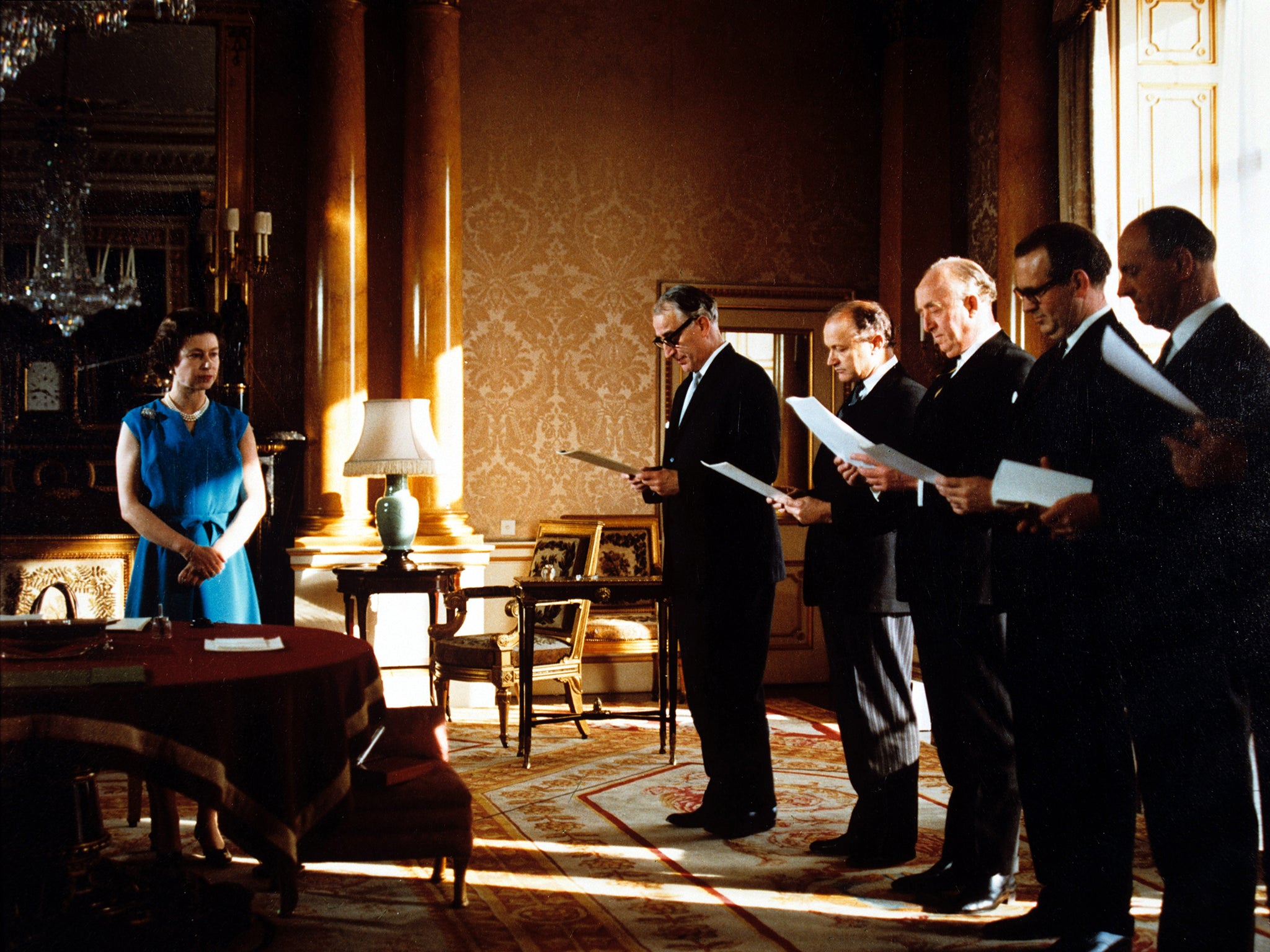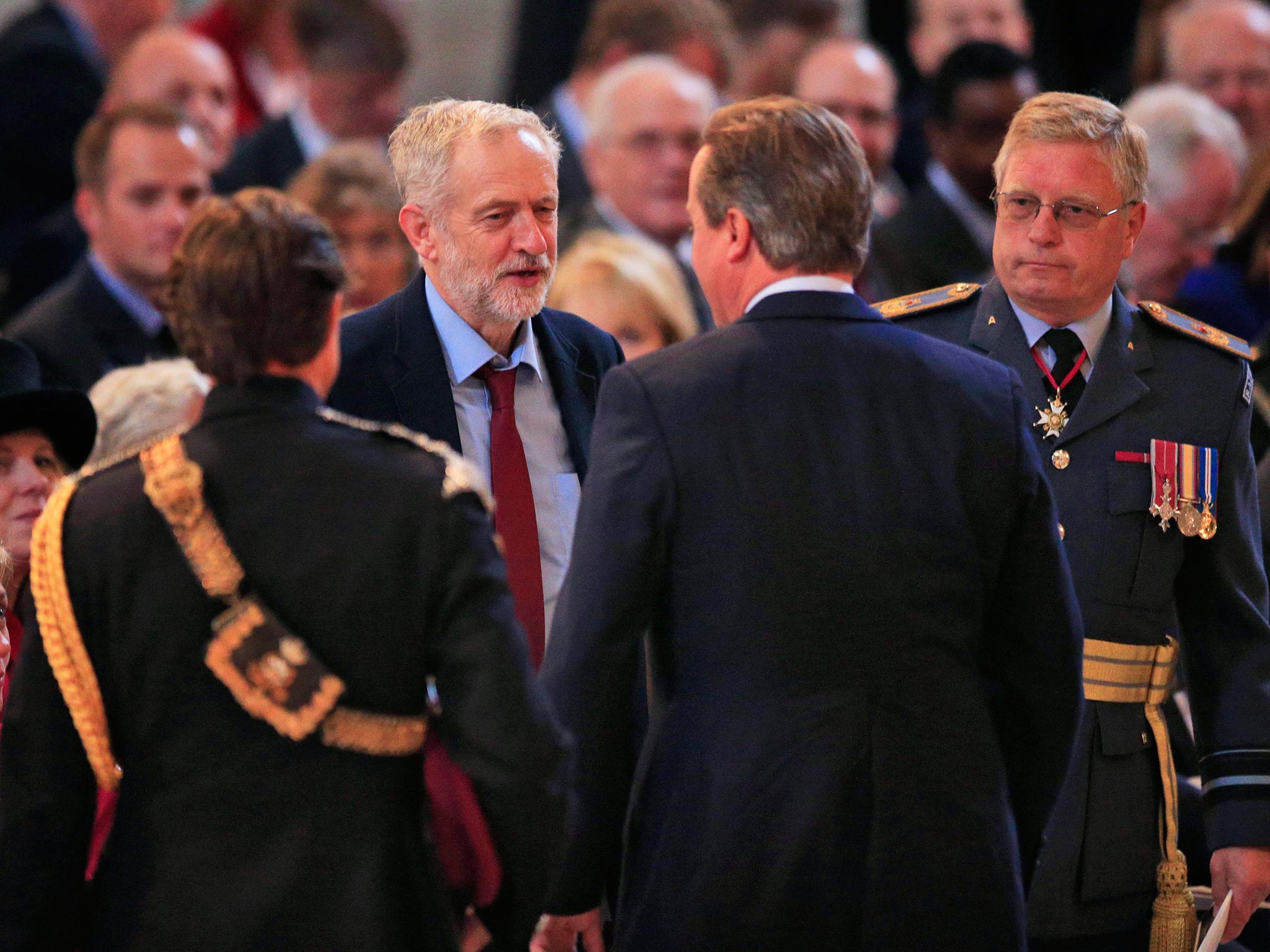Jeremy Corbyn: My absence from Privy Council was not intentional and nobody explained how the ceremony works
The explanation followed media reports that Mr Corbyn had 'snubbed' the Queen by refusing to be sworn into the Privy Council

It is written about in numerous constitutional manuals. There are plenty of Right Honourable MPs, from all parties, that know exactly what is involved. But Jeremy Corbyn has claimed he was still in the dark about what he was expected do at the ceremony where the Queen will make him a member of her advisory council.
Rather than extend his republican credentials to the delight of many anti-royalists, the new Labour leader is insisting that his absence from the Privy Council meeting on 8 October was not an intentional add-on to his national anthem silence at the recent Battle of Britain anniversary service.
No one has formally “explained what actually happens” at the Privy Council ceremony, Labour’s communications chief claimed.
The explanation followed media reports that Mr Corbyn had “snubbed” the Queen by refusing to be sworn into the Privy Council at the first meeting of the advisory group since he was elected leader last month.

Mr Corbyn was invited to attend the meeting and would have been expected to swear to be a “true and faithful servant unto the Queen’s Majesty” and kneel before Queen Elizabeth II.
Labour sources indicated a letter of apology had been dispatched to Buckingham Palace, though this was not confirmed.
Party press officials would also not say that because the grind of the lengthy leadership campaign and the unfamiliar stresses of taking the helm of his party he had taken a short holiday.
However Mr Corbyn’s press secretary, Kevin Slocombe, confirmed comments to the BBC by the Shadow Cabinet Office minister, John Ashworth, that the Labour leader had not rejected joining the Privy Council, and later told The Independent : “What actually happens next has not been explained”.
This echoes Mr Corbyn’s own comments to the BBC in an interview last month when he appeared not to known what was involved in the Privy Council ceremony.
The in-the-dark excuse was however rounded on by senior Whitehall sources
familiar with the rites of the Privy Council.
The source said it was “nonsense” to suggest no one had told the new Labour leader what happens next, adding: “Mr Corbyn is an avowed opponent of monarchy. And in a parliamentary democracy that of course is his right. There is no constitutional obligation on him. But to suggest he has not been informed of what is involved in becoming a member of the Privy Council, that I would guess is a delaying tactic. “
The advisory group’s once-a-month council’s are presided over by the Queen, but its role as a key administrative link between the monarch and parliament is now institutional rather than politically critical.
David Cameron missed three formal councils before being sworn in.

Of the 600 individuals who constitute the Privy Council, only a handful of Cabinet or senior ministers attend formal meetings. The quorum requirement of three plus the Lord President is one of the lowest such thresholds in Whitehall.
Because members of the Privy Council can come from the ranks of Commonwealth politicians and others based abroad, there is no formal requirement for a new member to attend a council presided over by the Queen.
However no previous leader of the opposition, who gains the title Right Honourable, has previously used the out-of-the-country protocol, called an “Order in Council”, to avoid direct contact with the sovereign.
The uncertainty over the Privy Council and Mr Corbyn’s stance has been welcomed by the pressure group, Republic.
Graham Smith, the chief executive of the group, said the debate over the role of the monarch and what MPs were expected to do, was now likely to grow if the Labour leader continued to question royal convention.
What custom dictates: Regal hurdles
In Opposition
Jeremy Corbyn already has a quasi-royal title – Leader of Her Majesty’s Most Loyal Opposition. And his decision to remain silent during the national anthem at the Battle of Britain service will be retested in November at the Cenotaph in Whitehall for the Remembrance Day ceremony.
In No 10?
If Mr Corbyn wins a general election, he will, as custom dictates, need to go to the Palace and seek the Queen’s permission to form a government. If that hurdle is overcome, there is more to come: the PM’s weekly audience with the Queen; his chancellor’s expected attendance with the Queen before a Budget; and regular services of thanksgiving commemorating special events, involving the Queen and the PM.
Join our commenting forum
Join thought-provoking conversations, follow other Independent readers and see their replies
Comments
Bookmark popover
Removed from bookmarks